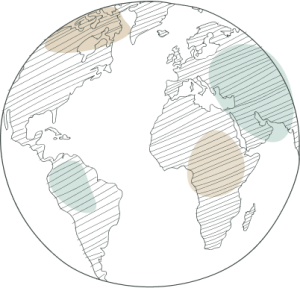
‘Constitutionalizing in the Anthropocene’ (CitA) is a collaborative research project based at Tilburg Law School’s Department of Public Law and Governance. Its members are exploring the manifold ways that law is (or could be) challenged by the ‘Anthropocene’. The project is contributing to ongoing global discussions that are re-imagining law’s conceptual foundations and its material manifestations in the face of wide scale, irreversible, and accelerating processes of environmental destruction and climate change.
CitA is an open and purposefully critical space of inquiry that encourages its participants to grapple with the legal and normative complexities and controversies that arise whenever legal questions are asked about the Anthropocene. Such questions are seen as being ‘constitutional’ because they revolve around problems that address the interactions of humans with each other, with non-humans, as well as with the world, the planet, the earth, and/ or the biosphere in this epoch of climatic change and large-scale transformations.
Constitutionalizing in the Anthropocene
“Constitutionalizing in the Anthropocene” (CitA) is a collaborative research project based at Tilburg Law School’s Department of Public Law and Governance. Its members are exploring the manifold ways that law is (or could be) challenged by “the Anthropocene”. The project is contributing to ongoing global discussions that are re-imagining law’s conceptual foundations and its material manifestations in the face of wide scale, irreversible, and accelerating processes of environmental destruction and climate change.
CitA is an open and purposefully critical space of inquiry that encourages its participants to grapple with the legal and normative complexities and controversies that arise whenever legal questions are asked about the Anthropocene. Such questions are seen as being ‘constitutional’ because they revolve around problems that address the interactions of humans with each other, with non-humans, as well as with the world, the planet, the earth, and/ or the biosphere in this epoch of climatic change and large-scale transformations.


